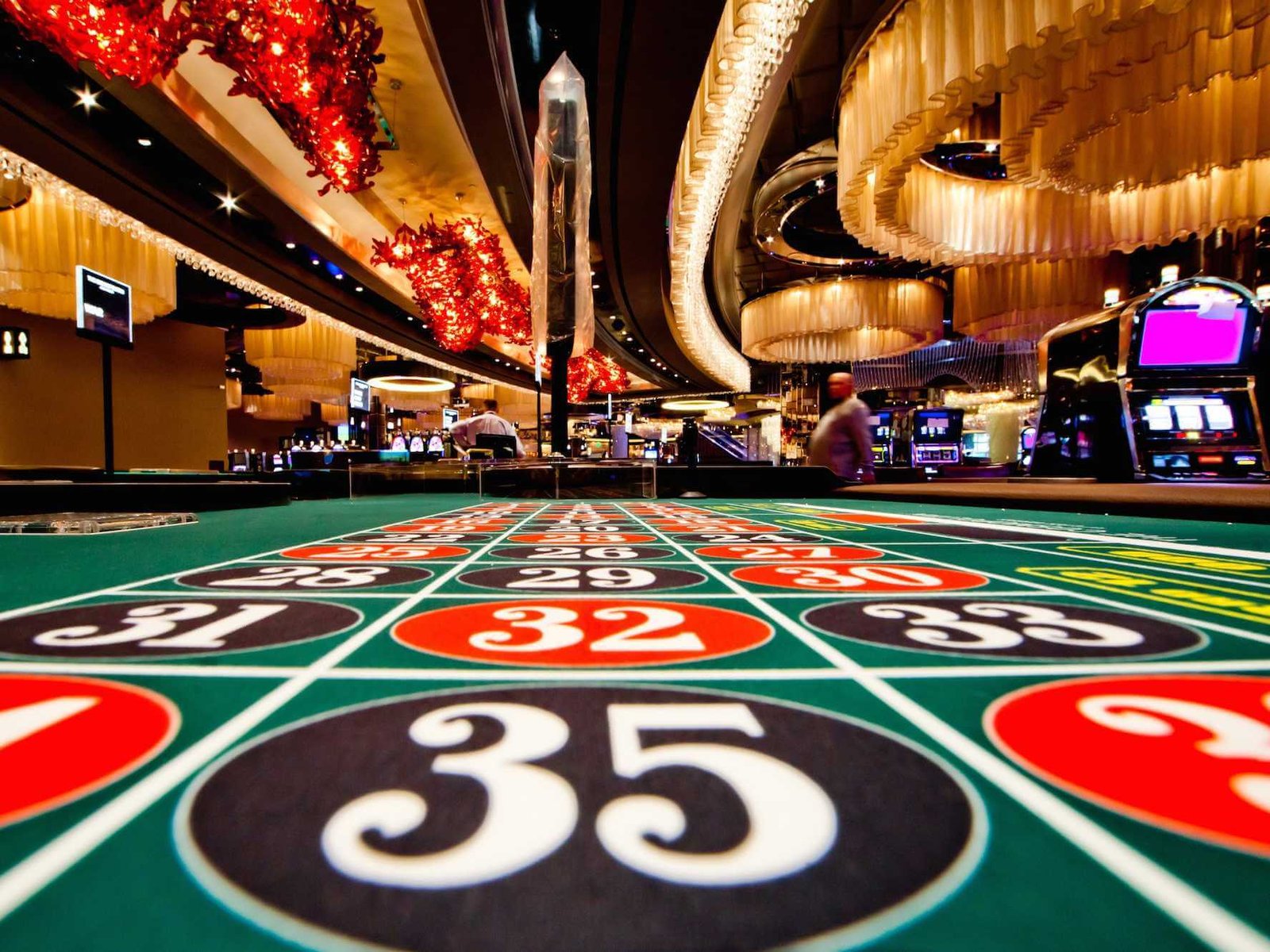As long as we have had language to place bets and opposable thumbs to improve our ability to throw down knucklebones, humans have been involved in gambling. But it wasn’t until the first casino in history, the Casino di Venezia in Venice, that the modern idea of a casino came into being. As time passed, game developers in Monaco’s Monte Carlo and Vegas’ Bellagio developed a strategy for manipulating Lady Luck out of the equation and stealing countless hard-earned dollars from unsuspecting players. From an initial observation, it could appear that everything happened naturally; as though years of testing resulted in the accidental creation of green felt tables and poker chips. That isn’t exactly true.
Casinos are actually masterworks of psychological deception. They’re tampering with your brain chemistry whether you’re merely stealing a glance at their opulent entry signs or strolling through the rows of slot machines. Not with mind control technology, mind you, but with tried-and-true tactics that entice you to spend more, stay longer, and return the next day to repeat the entire experience. Among the 13 secrets casinos don’t want you to know are some of these tactics.
1. They keep you there for as long as possible
Casino Gaming Strategies
• Casinos use simple yet effective strategies to increase spending.
• Few windows and non-existent clocks create a sense of timelessness.
• Lit-up interiors and flashing lights of slot machines trick the brain into thinking it’s stay-up time.
• Free alcoholic drinks are always available to break down inhibitions and keep players engaged.
• Casinos offer a maze of card game tables and bars, with a bathroom being difficult to find.
• Slot machines play jolly sounds, background music is cozy, and croupiers treat players like Johnny Cash.
• Casinos aim to make the experience feel like a good place, even when it’s not objectively not.
2. They watch you at all times
Casino Surveillance and Fraudulent Practices
• Casinos use extensive surveillance systems, including thousands of cameras and a round-the-clock security team.
• These systems use facial recognition technology and behavior algorithms to profile potential threats to the casino’s bottom line.
• Security teams operate the entire setup like a police force, with some venues having false mirrors and secret doors.
• The surveillance is designed to catch cheaters, who often use disguises and sleight of hand to mark cards or place false ones.
• Casinos have a history of dealing with sophisticated, high-profile schemes, with potential consequences for those caught.
• Security is typically only present to tackle the occasional rowdy drunk.
Casino Cheating and the “Intelligence Network”
• Casinos maintain an “intelligence network” to identify known cheaters and their methods.
• This network is similar to the MGM Grand version of the No Fly List.
• Breaking rules at one casino can lead to being persona non grata in all others.
• Information about cheaters can spread quickly, with the entire nation on high alert.
• Casinos also assist their rivals to prevent future undesirables.
• Government agencies use casino services to monitor launderers and mob bosses.
• Those attempting to commit “Ocean’s Eleven”-style heists should be cautious.
4. No one will talk sense into you
Casino Gambling: Heartbreaking Scenes
• Employees often witness heartbreaking scenes of gambling addiction.
• Reddit users report instances of individuals with inoperable brain tumors and drunk foreign students betting away their financial aid.
• Visitors often sell their appliances to gamble, claiming free food and drink from the casino.
• Employees may lose GoFundMe campaign money to a game of Texas Hold ‘Em.
• Gambling addiction is often uncontrollable, leading to potential misuse of funds.
• Individuals with gambling addiction should seek professional therapy if unable to control their gambling.
5. Some croupiers might steal from you
Casino Croupier Job Overview
• Croupiers earn an average of $15,450 a year.
• 75% of their salary is based on tips.
• Tips are earned through gladhand, small talk, and praying for the player’s win.
• Some croupiers may sneak chips into their socks, a rare occurrence.
• Casinos use SEAL Team Six to prevent inside jobs.
• Croupiers are generally honest and do their job like anyone else.
• Ensure vigilantness of chips and avoid excessive drinking.
• If suspecting theft, report it to security.
6. They can ban you if you win too much
Casino Gambling Rules and Regulations
• Casinos are viewed as free-market capitalism, with the potential to ban anyone without reason.
• There is a long-standing suspicion that casinos kick out their biggest winners.
• Two common situations for winning too much are: counting cards in blackjack, a mathematical strategy, and having a lucky streak.
• Casinos are not typically in the business of losing money, and if caught, they will ask the player to leave.
• Casinos may suspect cheating, but they have the right to refuse action if the player consistently fails their games.
7. Chips make you spend more
Casino Chips: A Symbol of Gambling Industry
• Casino chips are unique, hard to counterfeit, and easy to count.
• They are used for accounting purposes, but also have a psychological effect.
• Using casino chips leads to greater abandonment in spending.
• This effect is similar to how a credit card forces conscious spending, leading to less spending.
• The brain interprets chips as plastic for playing a game, not currency, making players more hesitant to invest.
8. They can track their chips
RFID Chips in Casinos: A Threat to Counterfeiting
• Chips have an RFID tag embedded within them that can scan, making them difficult to counterfeit.
• RFID blocking is recommended for travel wallets to protect cards.
• RFID technology is used to control chip inventory and improve casino experience.
• Some casinos allow cashing in or out from a phone, enhancing the cashless experience.
• RFID chips make it nearly impossible to steal chips, as seen in a robbery case at the Bellagio.
• The casino deactivated all chips worth more than $100 in the robbery, leaving the thief with a pile of Monopoly money.
9. Randomness is always against you
Understanding the Truth About Casino Rigging
• The belief that casinos determine when a player wins is not true.
• There is no “invisible hand” in casinos to ensure players never make too much.
• Slot machines are not rigged against players.
• Legal casinos are subject to strict regulations that prevent them from cheating.
• Casinos use randomness to gain the “house edge” and win the majority of the time.
• The idea of rigged machines is often misguided, leading to deception in the gaming industry.
• Games of chance pit the bettor against entropy itself.
10. Slots have some of the highest win rates
High-RTP Games and Casino Advantages
• High-RTP games offer a statistically higher chance of winning.
• RTP represents the percentage of return on wager expected from a game.
• An average RTP of 99% means a $100 bet would yield $99 back.
• RTP is never more than 100% due to the casino’s advantage.
• Slots typically pay out the highest RTP, dispelling the notion of rigged games.
• High-RTP works to the casino’s advantage as it creates a dopamine reward loop similar to social media, resulting in numerous small wins.
11. Some table games also have good odds
Casino Games: Skill and Win Rates
• Certain table games like blackjack, baccarat, craps, and poker variations have higher win rates than others.
• House edge in these games never exceeds 3% (RTP of 97-99%).
• Poker tests skill to its limits, while simple games like blackjack require basic knowledge.
• Craps requires throwing dice, while slots require more variables.
• Slot machines are popular and addictive due to their simplicity.
• Blackjack requires alertness and deliberate play, making it a less painless casino experience.
12. They use faster dealers at night
Casino Nighttime Strategy
• Nighttime is prime casino time, with skilled dealers and croupiers on the front lines.
• The reason is to close out tables faster and make more money.
• Testing this strategy can reveal faster game times in the afternoon and evening.
• This psychological manipulation affects perception of time, potentially affecting RTP.
• Tighter time thresholds for bets can pressure players, especially when tired or inebriated.
• Playing table games at night may not be the best strategy unless under sobriety and pressure.
13. Tons of people die in casinos
Las Vegas’ Tourist Death Rate
• Las Vegas experiences approximately 1,100 visitor deaths annually, primarily in and around the Strip.
• Casinos, filled with elderly pensioners and alcohol, often encourage poor decisions.
• About 15% of these deaths are not from natural causes, with 15% resulting from suicide.
• Casinos keep death a secret, with most deaths in their rooms.
• Some incidents include jumping to their deaths in the Luxor or drowning in the Hard Rock Hotel pool.




